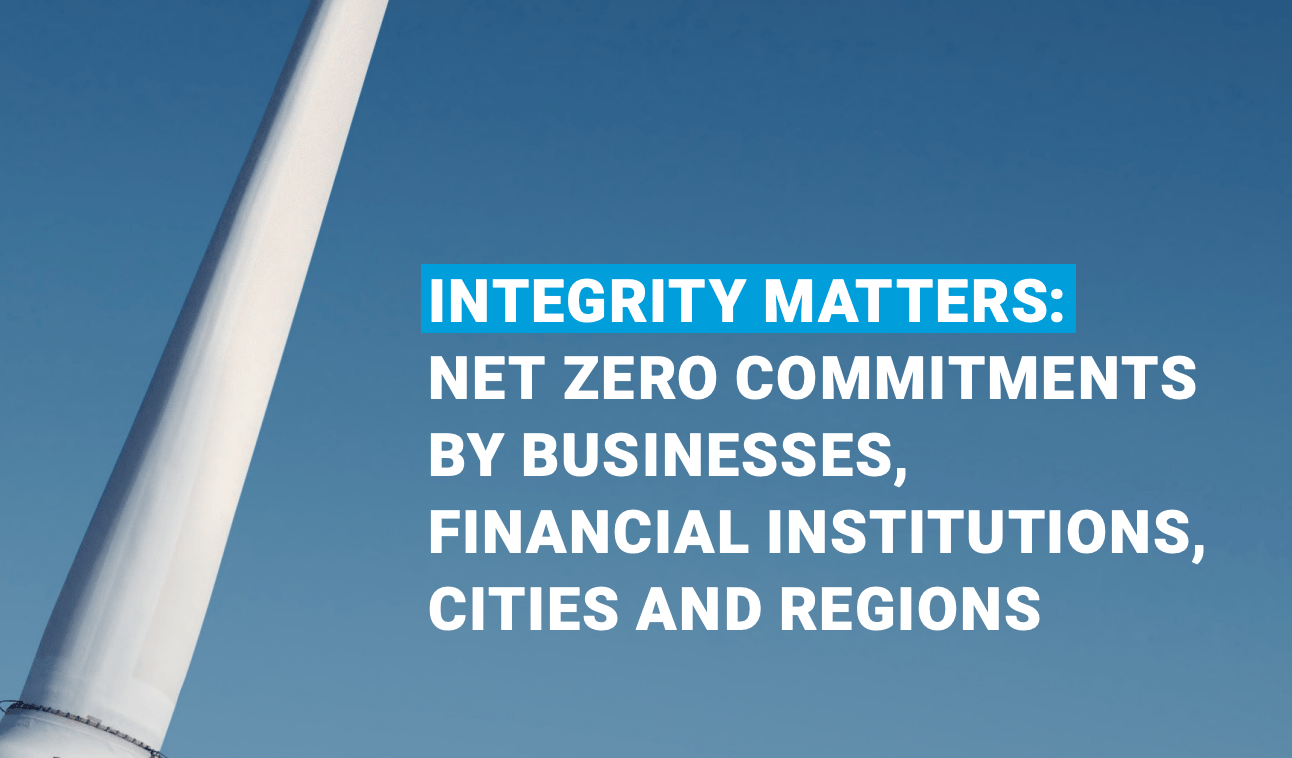
The 27th COP world climate conference which took place in Egypt just ended on November 18. This year’s COP event is interesting to observe because in the previous year, COP 26 in Glasgow made an important breakthrough to push the world to achieve net zero emissions by 2050 through the Glasgow Climate Pact.
As a follow-up to COP26 in Glasgow a High level expert group has been formed to deal with net zero commitments from non-state actors such as businesses, financial institutions and municipal governments. The increase in the number of net zero commitments after COP26 in Glasgow is great news. However, commitments and pledges must also be accompanied by plans that are realistic, measurable and can be in line with the recommendations from the IPCC report to keep the earth’s temperature rise no more than 1.5 degrees Celsius in 2030.
At COP 27, the Expert Group, which has been working since March 2022, released a report containing recommendations for non-state actors to implement a credible and accountable net zero commitment that will have an impact in the context of climate action.
The following is a complete description of the recommendations presented in the report:
- A net zero pledge must be a commitment by the entire entity, made in public by the leadership, and be reflective of the city, region or corporation’s fair share of the needed global climate mitigation.
- A net zero pledge must contain stepping stone targets for every five years, and set out concrete ways to reach net zero in line with the Intergovernmental Panel on Climate Change (IPCC) or International Energy Agency (IEA) net zero greenhouse gas (GHG) emissions modeled pathways that limit warming to 1.5°C with no or limited overshoot. The plan must cover the entire value chain of a city, state or business, including end-use emissions. It needs to start fast and not delay action until the last minute, reflecting the fact that global emissions must decline by at least 50% by 2030.
- Non-state actors must prioritize urgent and deep reduction of emissions across their value chains. High integrity carbon credits in voluntary markets should be used for beyond value chain mitigation but cannot be counted toward a non-state actor’s interim emissions reductions required by its net zero pathway.
- Non-state actors must publicly share their comprehensive net zero transition plans detailing what they will do to meet all targets, align governance and incentivize structures, capital expenditures, research and development, skills and human resource development, and public advocacy, while also supporting a just transition.
- City, region, finance and business net zero plans must not support new supply of fossil fuels: there is no room for new investment in fossil fuel supply and there is a need to decommission and cancel existing assets.
- Non-state actors must lobby for positive climate action and not against it. By working with governments to create strong standards, non-state actors can help create an ambition loop and ensure a level playing field for ambitious net zero pledges and to further de-risk a speedy transition and maximize the economic benefits of rigorous net zero alignment.
- By 2025, businesses, cities and regions with significant land‑use emissions must make sure that their operations and supply chains don’t contribute to deforestation, peatland loss and the destruction of remaining natural ecosystems. Financial institutions should have a policy of not investing or financing businesses linked to deforestation, and should eliminate agricultural commodity-driven deforestation from their investment and credit portfolios by 2025.
- Non-state actors must report publicly every year, and in detail, on their progress, including greenhouse gas data, in a way that can be compared with the baseline they set. Reports should be independently verified and added to the UNFCCC Global Climate Action Portal. Special attention will be needed to build sufficient capacity in developing countries to verify emission reductions. The recommendations of this report are therefore relevant to both the UNFCCC global stocktake (GST) process and the anticipated mitigation work program.
- To achieve net zero globally, while also ensuring a just transition and sustainable development, there needs to be a new deal for development which includes financial institutions and multinational corporations working with governments, Multilateral Development Banks and Development Finance Institutions, to consistently take more risk and set targets to greatly scale their investments in the clean energy transition in developing countries.
- To create net zero work and to create a level playing field, regulators should develop regulations and standards starting with high-impact corporate emitters, including private and state-owned enterprises and financial institutions. Countries should launch a new Task Force on net zero Regulation to convene regulators across borders and across regulatory domains, alongside leading voluntary and standard-setting initiatives and independent experts, to drive the reconfiguration of the ground rules of the global economy to align to the goals of the Paris Agreement.
